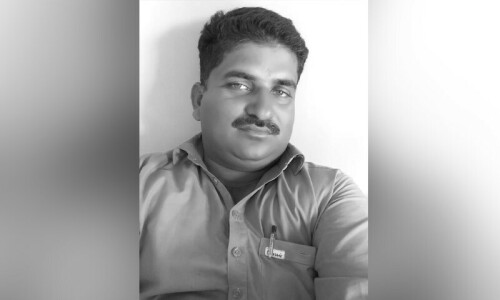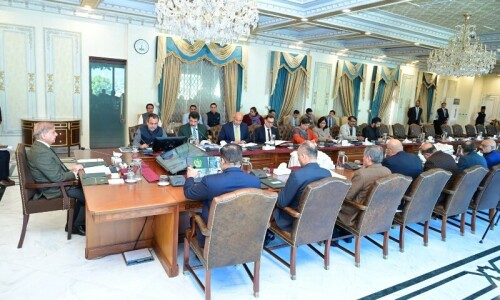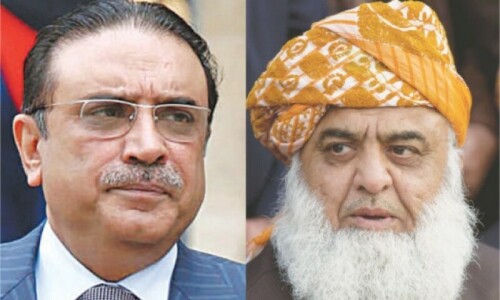CAMP LEJEUNE (North Carolina), Jan 8: Testimony began on Tuesday before a rarely used military tribunal investigating allegations that a newly-formed special forces unit killed as many as 19 Afghan civilians in March after its convoy was rammed by a car bomb.
Defence lawyers for two officers who led the unit said members of the Marine special operations company would testify about how they reacted to the attack. As many as 50 Afghan civilians were wounded in its aftermath in addition to those killed, though defence lawyers and others have said the death toll was lower. One Marine was wounded in the blast.
The administrative Court of Inquiry, which is scheduled to run for two weeks, will focus on the actions Maj Fred C. Galvin, 38, commander of the 120-person special operations company, and platoon leader Capt. Vincent J. Noble, 29. Neither officer has been charged with a crime.
Lt-Col Scott Jack, a defence attorney, said testimony on Tuesday would show that the March 4 incident “was a valid shoot, no question about it”.
“If you conclude that, then this court of inquiry is closed,” he said on Monday. Citing witness accounts, a report issued by Afghanistan’s Independent Human Rights Commission concluded that the Marines fired indiscriminately at pedestrians and at cars, buses and taxis in six different locations along a 16-kilometer stretch of road.
Marine lawyers declined to comment on Monday after the first day of the hearing, which involved a discussion of preliminary issues. The Marine Corps said in a written statement that the court will be asked to examine rules of engagement, fire discipline, reporting of the incident and the “command climate” of the company.
It is the first time in more than 50 years that the Marine Corps has used the administrative fact-finding tribunal. The two officers named in the inquiry could eventually be charged with conspiracy to make a false official statement, making a false statement, failure to obey a lawful order and dereliction of duty.
The decision on charges will ultimately rest with Lt. Gen. Samuel Helland, commander of US Marine Forces Central Command.
The incident began when the company was returning to its base from the Pakistan border and an explosives-rigged minivan crashed into their convoy along Highway One in Nangahar province. The unit was on its first deployment following the 2006 creation of the Marine Special Operations Command.
Army Lt-Gen Francis H. Kearney III, who led special operations forces in the Middle East at the time, ordered eight Marines back to Camp Lejeune after the shootings and removed the rest of the company from Afghanistan.
An Army brigade commander, 10th Mountain Division Col John Nicholson, apologised for the incident in May. Initial reports pegged the number of dead at 10 or 12, but Nicholson said officials had concluded 19 died and 50 were injured.
But the next week, Marine Corps commandant Gen. James T. Conway said Nicholson’s apology was premature because an investigation was still under way.
In November, Maj-Gen Dennis J. Hejlik, the commander of the Marine Special Operations Command, said the Marines responded correctly and he disagreed with Kearney’s decision to pull them out of Afghanistan.
The Defence Department’s inspector-general has since opened an investigation into Kearney’s actions. Defence attorneys were told on Monday they might not call Kearney as a witness.
Mark Waple, a civilian lawyer for Galvin, said in an interview that he asked the court to require Navy investigators to look to the possibility that occupants of a blue vehicle targeted by the Marines after the blast were Taliban members participating in a well-planned ambush.
The defence also asked for video and audio recordings of interviews conducted by Navy investigators with the Marines involved and transcripts of interviews with Afghan civilians.—AP














































Dear visitor, the comments section is undergoing an overhaul and will return soon.